Guanaja Information
Guanaja, (pronounced Gwa-NAH-hah) is the eastern-most and second
largest of the Bay Islands, is also known as the forgotten
island because tourists rarely visit it. What makes
Guanaja island so special is its seclusion. There is only
one small road on the whole island so most transportation is
done by water taxi or boat. Guanaja has spectacular, wide-open beaches on
its northern side and incredible reefs on all sides.
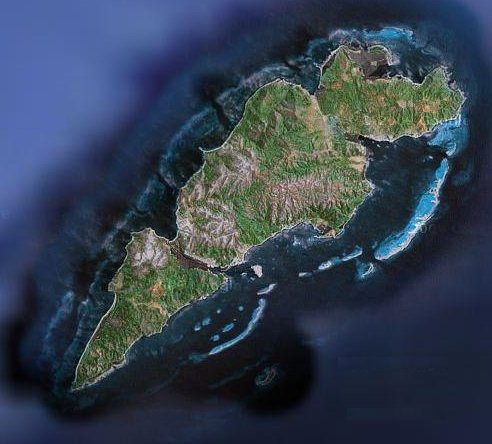 When
it comes to activities, Guanaja has a lot to offer. The
island has 45 dive sites that are known for healthy reefs,
volcanic caverns and wrecks. Most of the island's dedicated
dive resorts are located on isolated points around the
island, which are only accessible by boat. This makes
Guanaja a private and relaxing experience.
When
it comes to activities, Guanaja has a lot to offer. The
island has 45 dive sites that are known for healthy reefs,
volcanic caverns and wrecks. Most of the island's dedicated
dive resorts are located on isolated points around the
island, which are only accessible by boat. This makes
Guanaja a private and relaxing experience.
Michael Rock Peak (1,350 ft.) makes Guanaja the tallest of
the Bay Islands, and this makes for incredible hiking,
exploring. and views of the Caribbean Sea. Guanaja is
approximately 13 miles long by 10 miles wide. The entire
island of Guanaja is surrounded by a pristine barrier reef
system.
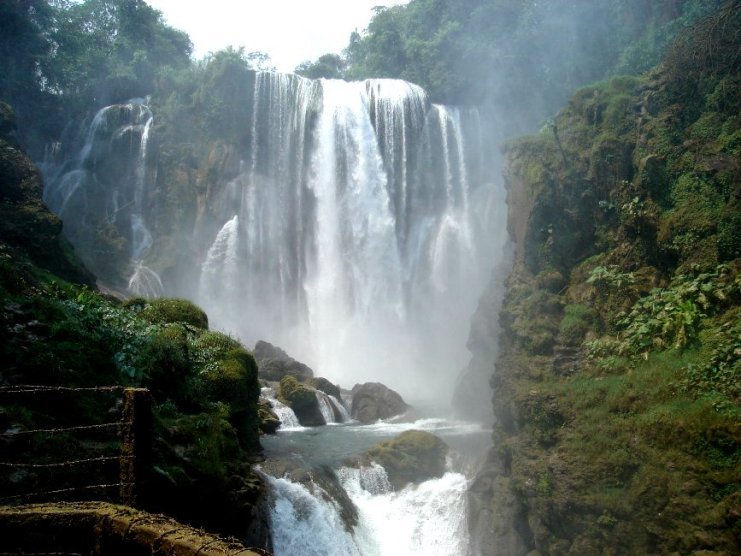 Other activities
on Guanaja include, kayaking, playing in enormous waterfalls and
discovering ancient Mayan artifacts. The white sand beaches on the north
side of the island offer excellent conditions for snorkeling and swimming.
Guanaja also offers some of the best scuba diving in the
northern hemisphere.
Other activities
on Guanaja include, kayaking, playing in enormous waterfalls and
discovering ancient Mayan artifacts. The white sand beaches on the north
side of the island offer excellent conditions for snorkeling and swimming.
Guanaja also offers some of the best scuba diving in the
northern hemisphere.
When visiting Guanaja it is recommended that you carry cash. Banking is
limited and there are no ATMs. Traveler's checks are not accepted, and
cannot be changed at the bank. Most businesses do not accept credit cards so
it’s better to come prepared. The locals all speak English, so it is easy to
interact.
Guanaja Honduras Information
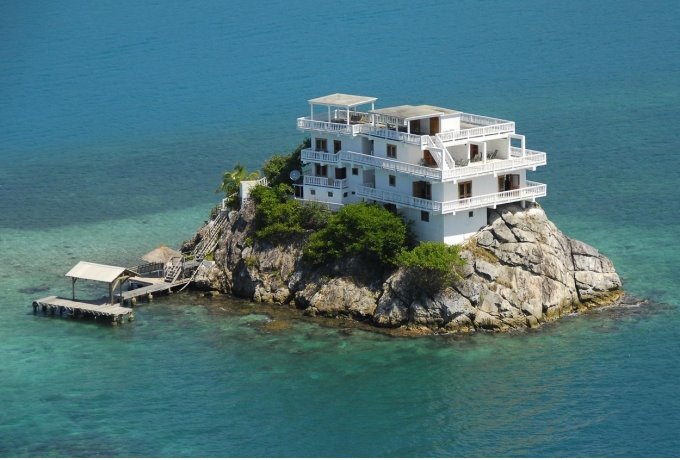 Guanaja
Honduras
has an excellent real estate market at this time. There are
some incredible houses for sale at absolutely bottom of the
market prices. Dunbar Rock (pictured on right) is currently
for sale, now's your chance to own your own private island.
Dunbar Rock was originally put on the market for $1,700,000.
The current asking price has been lowered to $1,000,000 and
it is rumored the current owners would accept even less.
This is just one example of some of the great real estate
values on Guanaja.
Guanaja
Honduras
has an excellent real estate market at this time. There are
some incredible houses for sale at absolutely bottom of the
market prices. Dunbar Rock (pictured on right) is currently
for sale, now's your chance to own your own private island.
Dunbar Rock was originally put on the market for $1,700,000.
The current asking price has been lowered to $1,000,000 and
it is rumored the current owners would accept even less.
This is just one example of some of the great real estate
values on Guanaja.
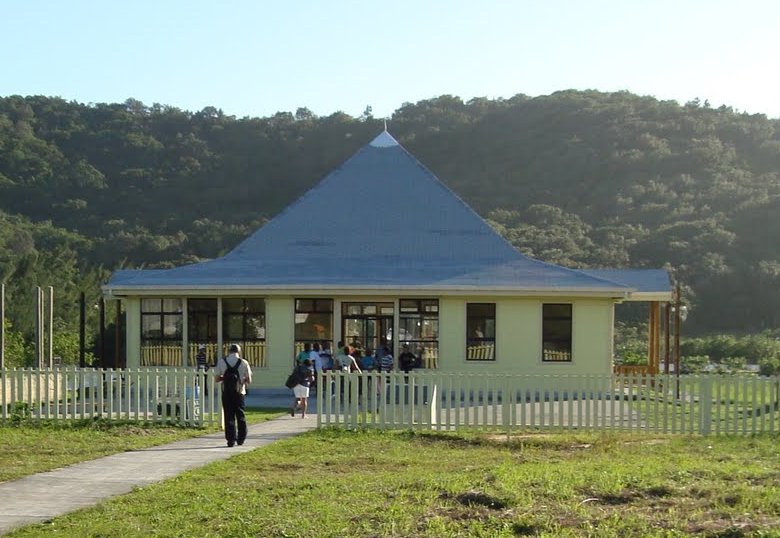 Guanaja recently built a new commercial
airport, giving way to new opportunities for
growing tourism in Guanaja. A combined effort from the
Honduran and Japanese governments contributed toward the new
terminal. Both locals and foreigners will be able to take
advantage of everything Guanaja has to offer. The new
airport terminal and runway have been completed. Guanaja is
expecting a 200% increase in tourism each year for the next
ten years. 2000% growth in ten years sounds large, however
similar growth has happened on many Caribbean islands once a
commercial airport was built.
Guanaja recently built a new commercial
airport, giving way to new opportunities for
growing tourism in Guanaja. A combined effort from the
Honduran and Japanese governments contributed toward the new
terminal. Both locals and foreigners will be able to take
advantage of everything Guanaja has to offer. The new
airport terminal and runway have been completed. Guanaja is
expecting a 200% increase in tourism each year for the next
ten years. 2000% growth in ten years sounds large, however
similar growth has happened on many Caribbean islands once a
commercial airport was built.
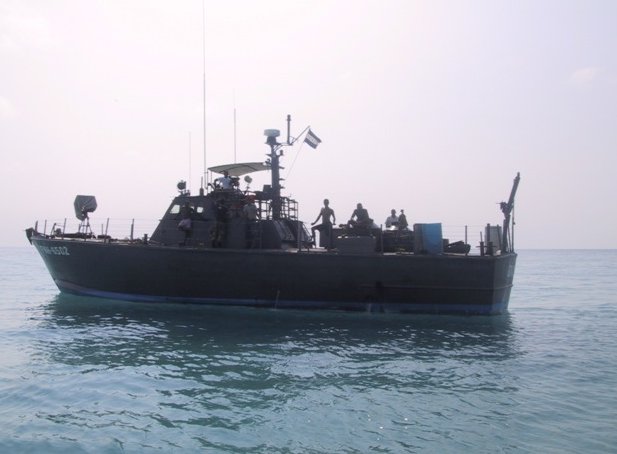 Commercial and industrial development along with the
popularity and increase of tourism in Guanaja has motivated
the naval force to build a new base on Guanaja. The plans
are to extend the project to include Naval Bases on Roatan
and Utila as well. Guanaja will be the first location to
have a base constructed because of its remoteness and heavy
activity of drug planes passing overhead. Each base will
include patrol boats, naval infantry and special services.
Commercial and industrial development along with the
popularity and increase of tourism in Guanaja has motivated
the naval force to build a new base on Guanaja. The plans
are to extend the project to include Naval Bases on Roatan
and Utila as well. Guanaja will be the first location to
have a base constructed because of its remoteness and heavy
activity of drug planes passing overhead. Each base will
include patrol boats, naval infantry and special services.
Christopher Columbus sailed to Guanaja in 1502. This was his
fourth voyage to the New World. Columbus was met by Mayan
Indians and was quickly welcomed. Guanaja was so covered in
pine trees that Columbus initially named the easternmost Bay
Island "Isle of Pines" for its dense cover of pine trees.
Unfortunately, most of the pine trees covering Guanaja were
destroyed by Hurricane Mitch in 1998. Guanaja has recovered
and regained much of its beauty.
Guanaja Honduras Tags
Guanaja, Honduras, Island of Guanaja, Guanaja information, Guanaja Activities, Guanaja Real Estate, Guanaja Island Honduras, Dunbar Rock, Guanaja Vacations, Guanaja Scuba Diving
